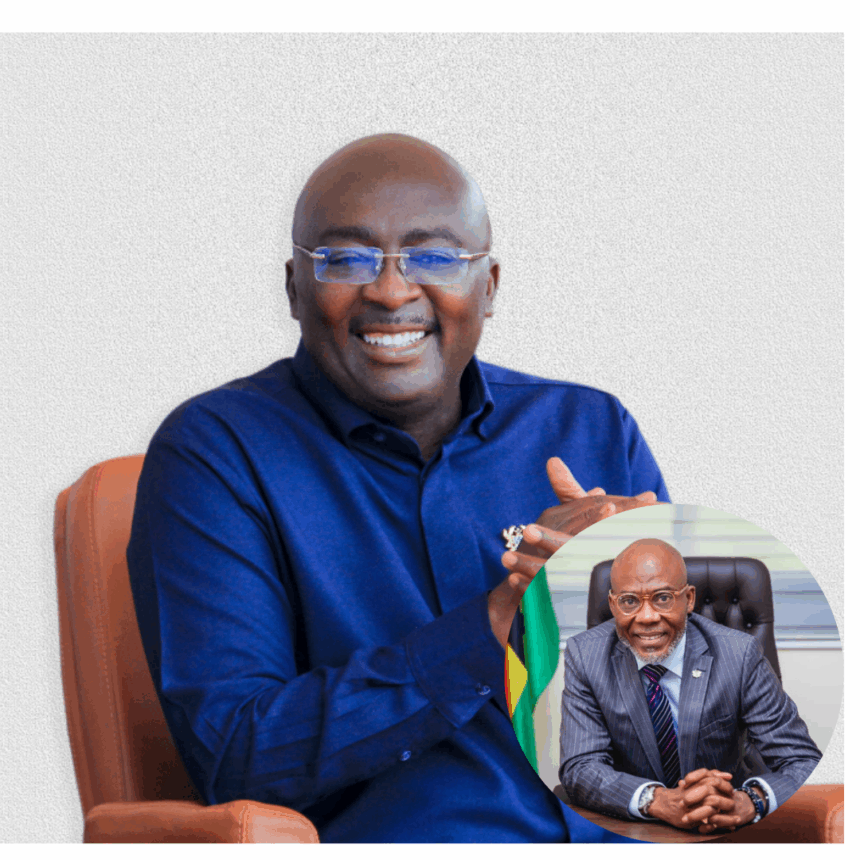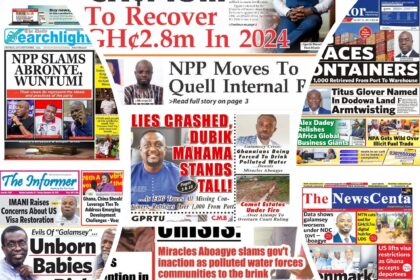By: Musah Superior
The deliberate mischaracterizations made by some anti DMB elements within the New Patriotic Party against Dr. Mahamudu Bawumia is a desperate attempt to soil the strongly built image and widely accepted credibility of Dr Bawumia in comparison to his fellow contenders.
Dr. Bawumia has redefined the role of a running mate and elevated the office of the vice president into a key policy engine.
The NDC has long held disdain for him, especially for the strategic role he played in dismantling their electoral dominance prior to 2016. Between 2008 and 2016, Dr Bawumia completely destroyed the NDC. Within the NPP, his rapid rise—built on competence, not lineage—has not come without envy. Yet, any fair-minded assessment must go beyond emotional reactions and instead examine each candidate’s record, credibility, and vision for Ghana’s future.
Although, some of the Presidential aspirants claim a certain “grassroots man” exclusivity, they are in fact unpopular among the recently approved electoral college of our great party. I recognize the full worth of their zeal and tenacity, but it remains certain that Dr Mahamudu Bawumia is enjoying a great deal of support from the party nationawide.
Yes, voters want relatable leaders—but not ones with histories of divisive rhetoric that could alienate swing voters, urban professionals, or diplomatic partners. For a party seeking unity and renewed public trust, we require someone whose persona doesn’t expose us to danger or loss.
Unlike other contenders, Dr. Bawumia brings a tested, technocratic vision that has already reshaped governance. His achievements are tangible, and his policies forward-looking. Most importantly his politics is decent!
Gold for Oil Initiative was never a mere damage control but a bold, non-traditional response during a global crisis. It restructured import pressures and stabilised fuel access—widely acknowledged as pragmatic innovation.
Also, from the digital address system to the Ghana Card integration, e-pharmacy to drone-based medical deliveries, Dr. Bawumia has driven reforms that resonate with youth, professionals, and investors alike. These aren’t gimmicks—they’re laying the foundation for a modern, transformational and transparent economy.
One pro Kennedy Social media commentator has been criticizing Dr Bawumia for what he describes as “economic failures” of the previous Nana Addo led government; and his reason is that Dr Bawumia was the leader of the Economic Management which in his assessment “failed”.
Now, let’s get this right. Dr. Bawumia chaired the EMT, yes—but it was an advisory body. He neither appointed the Finance Minister nor had executive power over fiscal policy. Blaming him singularly for the economic downturn ignores both institutional constraints and global headwinds (COVID-19, Ukraine war, commodity shocks). In truth, the crisis exposed structural flaws—not personal failures. If anything, his ability to function and innovate within those constraints shows resilience and depth—a quality Ghana needs moving forward.
The idea that someone else other than Dr Bawumia within the NPP has to “reset” and put the country on the right track is laughable! The reality is that some of the aspirants emotional volatility and legal entanglements will be electoral red flags. Others will be shadowed by public distrust over conflicts of interest. We cannot risk this!
Dr. Bawumia’s campaign is not anchored in defending the past—but in owning the future. His emphasis on digital infrastructure, fintech growth, fiscal transparency, and youth empowerment places him in sync with the aspirations of the next generation.
The 2024 elections were a call to reform, not reject experience. Bawumia embodies both. he knows where the potholes are—and he has ideas on how to avoid them. In contrast, his contenders are either untested, divisive, or battling credibility concerns.
If the NPP is serious about winning in 2028, it must present a candidate with broad national appeal, proven competence, and a bold vision. That candidate is Dr. Mahamudu Bawumia—not because of what he represents from the past, but because of what he offers for Ghana’s future.


